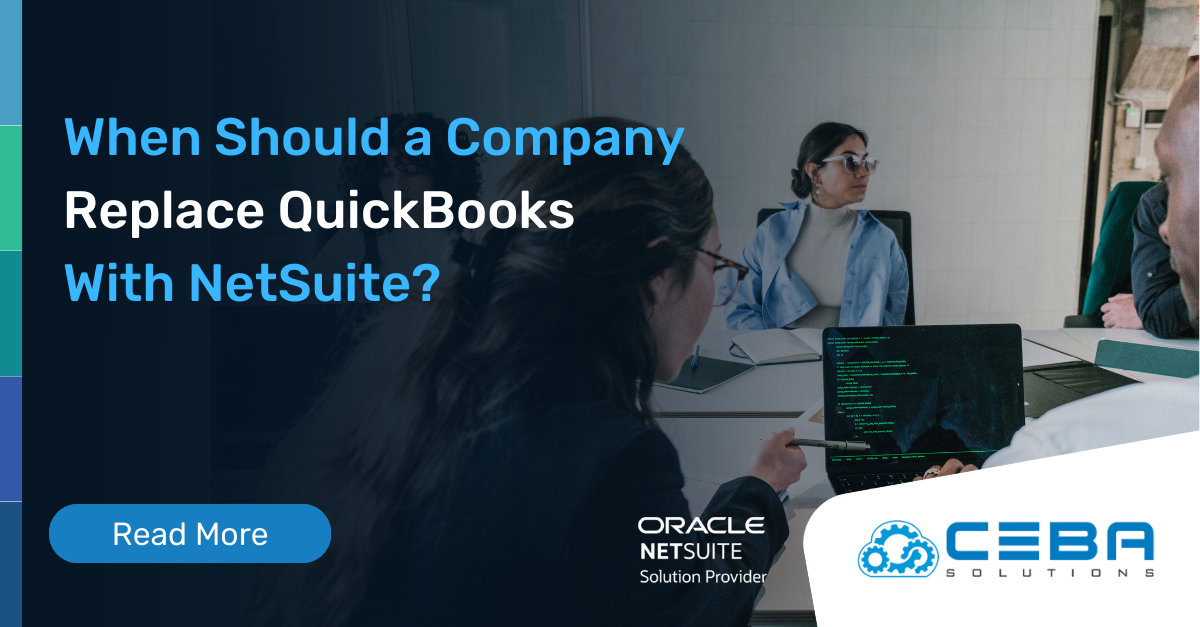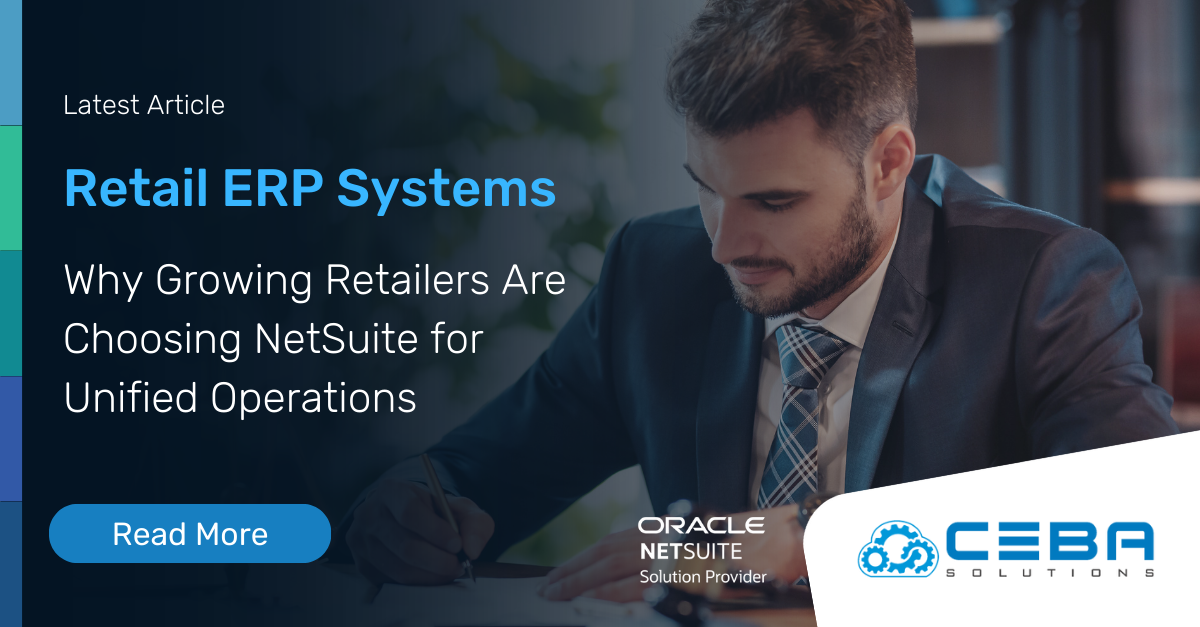
Streamlining Success: How NetSuite ERP Outperforms Siloed Systems for Small Businesses
Streamlining Success: How NetSuite ERP Outperforms Siloed Systems for Small Businesses
In today's fast-paced and highly competitive business environment, it is essential for small businesses to adopt effective and efficient tools and technologies to stay ahead of the competition. Among these tools is an Enterprise Resource Planning (ERP) system, which is designed to integrate and streamline various business processes such as accounting, customer relationship management (CRM), and inventory management. NetSuite is a popular cloud-based ERP software that offers a range of features and benefits to small businesses. In this article, we will compare the experience of a small business using NetSuite ERP with using siloed systems for accounting, CRM, and inventory management.
Streamlining Success. How NetSuite ERP Outperforms Siloed Systems for Small Businesses
In today's fast-paced and highly competitive business environment, it is essential for small businesses to adopt effective and efficient tools and technologies to stay ahead of the competition. Among these tools is an Enterprise Resource Planning (ERP) system, which is designed to integrate and streamline various business processes such as accounting, customer relationship management (CRM), and inventory management. NetSuite is a popular cloud-based ERP software that offers a range of features and benefits to small businesses. In this article, we will compare the experience of a small business using NetSuite ERP with using siloed systems for accounting, CRM, and inventory management.
NetSuite ERP vs Siloed Systems
NetSuite ERP is an integrated system that combines various business processes into a single platform, whereas siloed systems operate independently of each other, often leading to data inconsistencies, duplication of efforts, and inefficiencies. Here is a comparison of NetSuite ERP and siloed systems based on various factors:
Factor 1: Integration
NetSuite ERP offers seamless integration of accounting, CRM, and inventory management functions, allowing businesses to have a 360-degree view of their operations. On the other hand, siloed systems operate in isolation, making it difficult for businesses to get a comprehensive view of their operations. This often leads to data inconsistencies and inaccuracies.
Factor 2: Automation
NetSuite ERP automates various business processes, such as accounting and inventory management, allowing businesses to save time and reduce errors. Siloed systems require manual input and can be time-consuming and error-prone.
Factor 3: Reporting
NetSuite ERP provides real-time reporting and analytics, allowing businesses to make informed decisions quickly. These reports and analytics can also be presented in a centralized dashboard, making it easy to keep track of everything that is going on in the business.
Factor 4: Scalability
NetSuite ERP is scalable and can grow with the business, providing businesses with flexibility and agility. Siloed systems may not be able to keep up with the growth of the business, leading to operational inefficiencies.
Factor 5: Cost
NetSuite ERP may require a higher upfront investment, but it offers a comprehensive and integrated solution that can save businesses money in the long run. Siloed systems often require multiple investments, leading to higher costs over time, which ultimately will need to be replaced with an integrated ERP solution when the business reaches critical mass.
Factor 6: Security
NetSuite ERP offers robust security features, including data encryption and multi-factor authentication. Siloed systems may have weaker security features, putting businesses at risk of data breaches and other security threats.
Factor 7: Support
NetSuite ERP partners like CEBA Solutions offer comprehensive customer support, including training and ongoing technical support. Siloed systems may not offer the same level of support, leaving businesses on their own when it comes to troubleshooting and problem-solving.
Factor 8: User Experience
NetSuite ERP offers a user-friendly interface, making it easy for businesses to navigate and use the platform. Siloed systems may have different interfaces and user experiences, leading to confusion and inefficiencies.
In Summary
In conclusion, NetSuite ERP offers small businesses a comprehensive and integrated solution to manage their accounting, CRM, and inventory management functions, leading to operational efficiencies, cost savings, and improved decision-making. Siloed systems, on the other hand, operate independently, often leading to inefficiencies, data inconsistencies, and higher costs over time. For these reasons, NetSuite ERP is the ideal solution for small businesses looking to streamline operations and maximize their resources.










